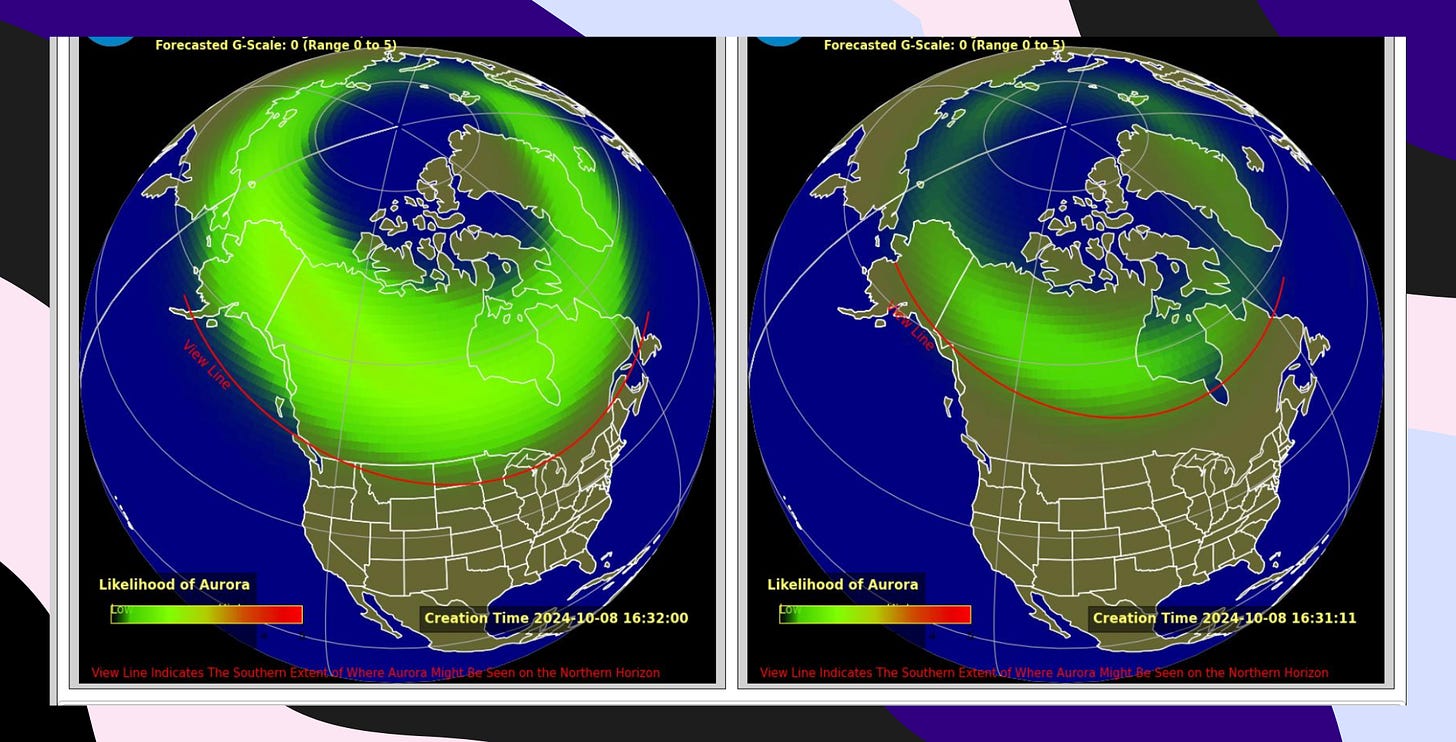A hurricane barrels toward Florida
… plus curiosities from endangered languages, the Northern Lights, and more
Welcome back to another edition of The Detour! My name is Kelly, and I’m the newsletter’s founding writer. With every issue of The Detour, I hope to deliver you an honest, dynamic, and engaging newsletter that cuts through the noise of the internet and sparks curiosity from all corners of the globe. You, dear reader, are part of a global community of 26,000+ strong. (Which is, honestly, pretty incredible. Thank you for being here.)
Here’s what some of you are saying:

If you've enjoyed reading The Detour, I would be so grateful if you supported it with a paid subscription. (Thank you to our paid subscribers who keep this newsletter independent and consistently running!) If there’s something you think I’m missing that could motivate your support of this work, I’m all ears! Please email me your thoughts, concerns, and pie-in-the-sky ideas at kelly@frame.media and I’ll get back to you as soon as I can.
If you’ve loved what we’ve been up to in this corner of the internet, please consider giving our newsletter a shout-out to your friends and family:
Thank you for reading,
Kelly
Without further ado, here’s what’s on deck:
🗒️ How climate change may impact half of the world’s languages
👀 The South Pole’s first sunrise of the year
🌀 What scientists are saying about Hurricane Milton
📚 What Hannah Arendt can teach us about late-capitalist consumerism
3 — The number of solar flares that erupted over the past week, triggering geomagnetic storms that have led to incredibly impressive aurora borealis further south than normal.

NASA says the electromagnetic activity that creates these northern lights will continue well into 2025, making it possible for parts of North America as far south as Florida to see the spectacle.
45,000 — The number of dockworkers who went on strike across the East Coast and Gulf Coast to demand higher wages and a guarantee that automation won’t be used put many of them out of work. Their demonstrations shut down 36 of the nation’s largest shipping hubs for three days and ultimately resulted in dockworkers agreeing to return to work in exchange for a 62% pay increase over the next six years. (Negotiations regarding the use of automated machinery at the ports has yet to take place.) If the strike had lasted any longer, economics experts say it would have caused major damage to the American economy.

There’s much more to The Detour this week. Subscribe below for a free seven-day trial to keep reading.
Keep reading with a 7-day free trial
Subscribe to The Detour by Kelly Kimball to keep reading this post and get 7 days of free access to the full post archives.





